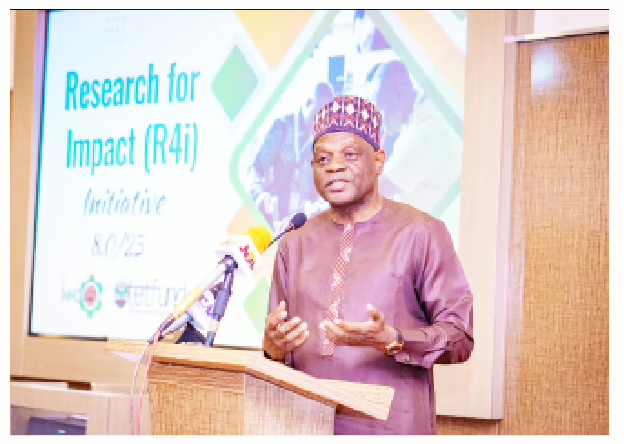Revolutionizing Campus Power Supply: TETFund’s Solar Initiative for Nigerian Tertiary Institutions
For many years, inconsistent electricity supply has plagued Nigerian universities and colleges, disrupting academic activities and hindering educational progress. Frequent power outages have caused lecture halls to plunge into darkness mid-session, laboratories to halt critical experiments, ICT centers to shut down unexpectedly, and libraries to operate under insufficient lighting.
The Challenge of Unreliable Electricity in Higher Education
In today’s digital age, where education heavily relies on technology and continuous research, unstable power remains a significant barrier to academic excellence. Many institutions resort to diesel generators, which are costly and environmentally unfriendly, while others ration electricity, limiting students’ access to essential learning resources.
TETFund’s Strategic Intervention: A Shift Toward Sustainable Energy
Recognizing the urgent need for a dependable power solution, the Tertiary Education Trust Fund (TETFund) has launched an ambitious electrification program under its 2025 Disbursement Guidelines. This initiative earmarks billions of naira to implement solar energy projects across selected tertiary institutions nationwide, aiming to foster energy autonomy on campuses.
In collaboration with the Rural Electrification Agency (REA), TETFund plans to install solar mini-grids in universities and polytechnics, providing clean, reliable, and eco-friendly power. This approach reduces reliance on the often unreliable national grid, which has long failed to meet the energy demands of educational institutions.
Nationwide Reach: Empowering Institutions Across All Geopolitical Zones
The electrification drive targets twelve institutions spanning Nigeria’s six geopolitical zones, ensuring equitable access to sustainable energy. From Ibrahim Badamasi Babangida University in Niger State to Lagos State University in the South West, and from Nigeria Army University in Borno to Alvan Ikoku Federal University of Education in Imo, the project covers a diverse range of campuses.
Each selected institution will receive tailored solar power systems designed to energize classrooms, laboratories, libraries, hostels, and administrative offices, thereby enhancing the overall academic environment.
Transforming Education Through Reliable Power
A senior TETFund official emphasized, “This initiative transcends mere energy provision; it represents a strategic investment in Nigeria’s knowledge economy. Consistent electricity supply will unlock the full potential of teaching, research, and innovation within our tertiary institutions.”
For students at Federal Polytechnic Oko in Anambra State or Federal Polytechnic of Oil and Gas in Bonny, Rivers State, the impact will be immediate-enabling uninterrupted research activities, extended library hours, fully operational ICT centers, and safer, well-lit campuses.
Promoting Local Expertise and Transparency
In line with the Public Procurement Act 2007, TETFund and REA have opened bidding to qualified contractors, prioritizing firms with proven experience in large-scale solar installations within Nigeria. This ensures high-quality project delivery while empowering local engineers, renewable energy specialists, and suppliers.
Contractors must demonstrate technical proficiency, financial stability, and adherence to national standards, fostering accountability and capacity building within the country’s renewable energy sector.
Comprehensive Coverage Across Nigeria’s Regions
- North Central: Ibrahim Badamasi Babangida University, Lapai (Niger State) and Federal Polytechnic Nasarawa
- North East: Nigeria Army University, Biu (Borno) and Federal Polytechnic Mubi (Adamawa)
- North West: Northwest University Kano and Federal Polytechnic Daura (Katsina)
- South East: Alvan Ikoku Federal University of Education (Imo) and Federal Polytechnic Oko (Anambra)
- South South: Ambrose Alli University (Edo) and Federal Polytechnic of Oil and Gas (Bonny, Rivers State)
- South West: Lagos State University and Federal Polytechnic Ilaro (Ogun State)
This inclusive approach underscores TETFund’s commitment to ensuring no region is excluded from the educational transformation powered by renewable energy.
Ensuring Accountability and Project Success
With bid submissions scheduled for September 1, 2025, stakeholders remain hopeful that this initiative will avoid the pitfalls of abandoned government projects. Civil society organizations and professional bodies have been invited to oversee the bidding and implementation processes, promoting transparency and integrity.
A New Dawn for Nigerian Tertiary Education
This electrification project promises to end the era of students studying by torchlight, lecturers canceling classes due to power failures, and research activities stalling from lack of electricity. Beyond merely illuminating campuses, TETFund’s solar initiative aims to energize innovation, academic excellence, and the future of Nigeria’s educational landscape.























0 Comments